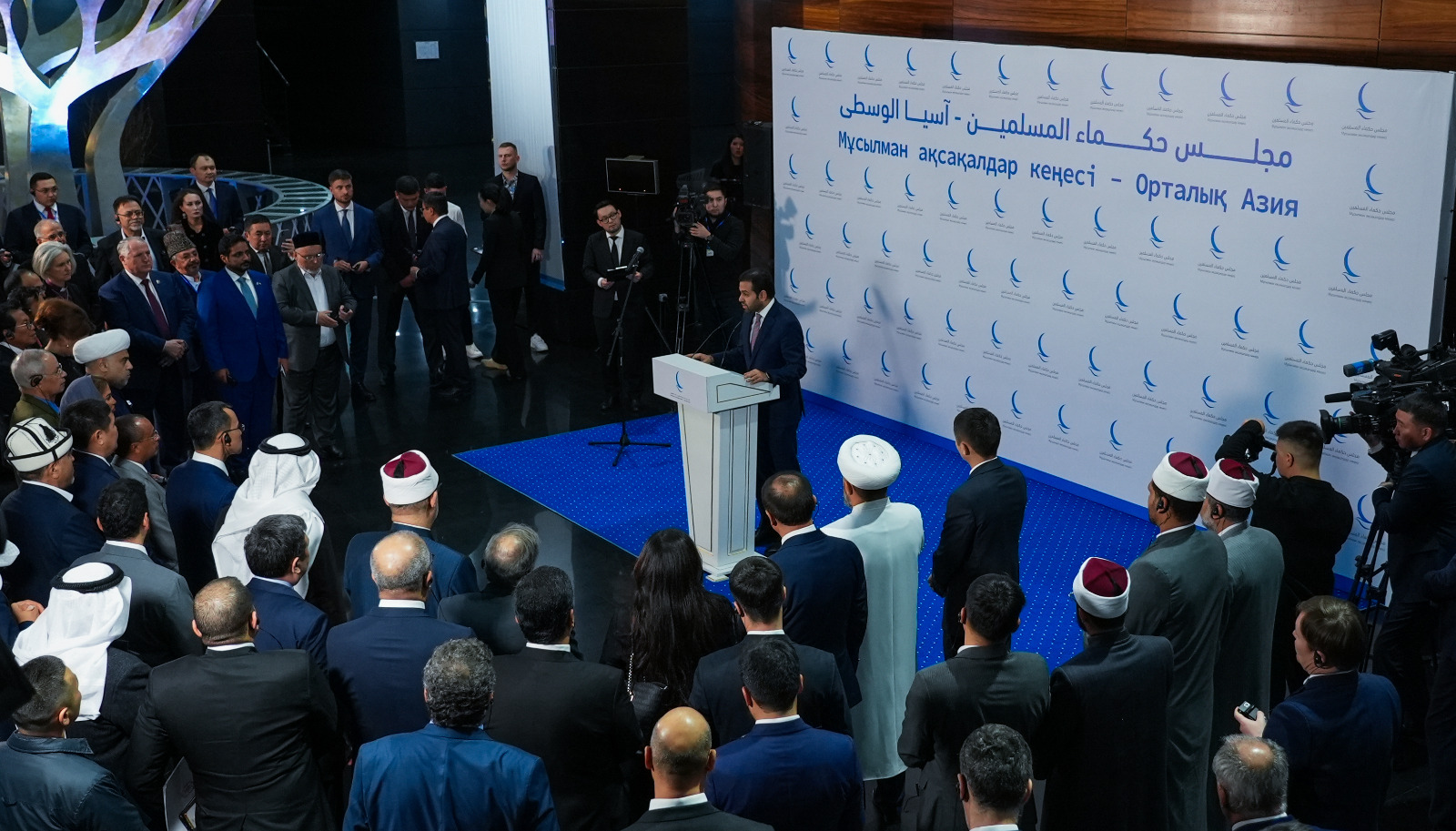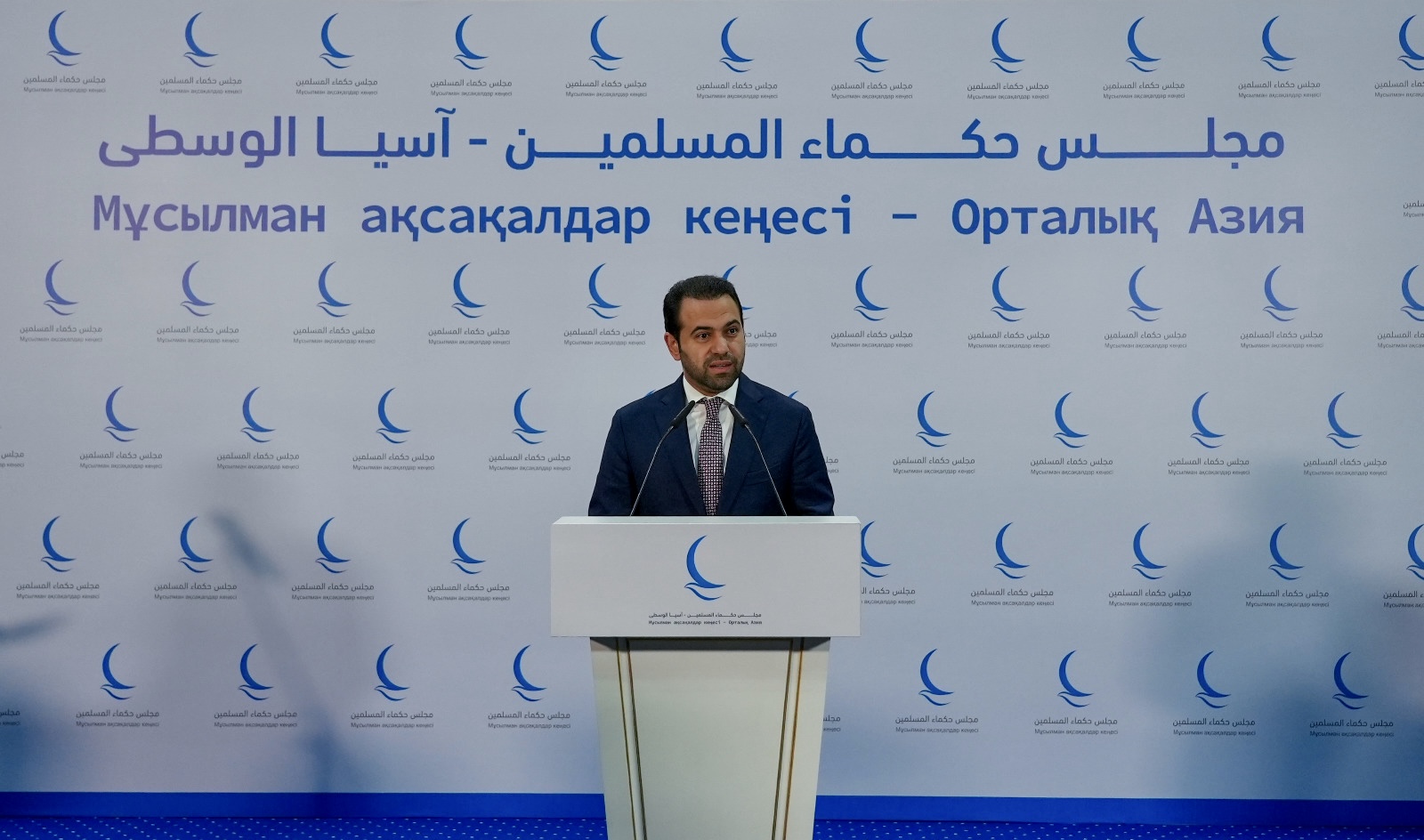ASTANA – The inauguration of the Central Asian branch of the Muslim Council of Elders in Astana on Oct. 11 will foster religious diplomacy and serve a catalyst towards peace, understanding and cooperation, said Judge Mohamed Abdelsalam, the Secretary-General of the Muslim Council of Elders in an interview with The Astana Times.

The inauguration of the Central Asian branch of the Muslim Council of Elders took place in the Palace of Peace and Reconciliation in Astana. Photo credit: Abdelsalam’s press service.
The Muslim Council of Elders is an independent international organization aimed at promoting peace, understanding, and cooperation in Muslim and non-Muslim societies alike. The council is chaired by Ahmed Al-Tayeb, the Grand Imam of Al-Azhar and is comprised of senior Muslim scholars and leaders from around the globe.
The branch in Astana
The opening of the branch on the sidelines of the 21st session of the Secretariat of the Congress of Leaders of World and Traditional Religions is an important step towards strengthening bilateral relations and building a bridge between religions and cultures, according to Abdelsalam.

Judge Mohamed Abdelsalam at the inauguration of the Central Asian branch of the Muslim Council of Elders in Astana. Photo credit: Abdelsalam’s press service.
“The Muslim Council of Elders’ Central Asian branch which will be based in Astana will serve as a hub for the council’s work in the region and will play an important role in promoting interfaith dialogue, understanding, and cooperation,” he said.
Engagement with a wider geographic region is also one of the reasons for opening a new branch.
“The new branch also aims to bridge the gap in dialogue and communication between diverse cultures and religions which aligns with the council’s broader efforts to activate channels of communication with Muslims worldwide,” said Abdelsalam.
The new branch opens opportunities for collaboration between the Muslim Council of Elders and Kazakhstan.
“The council and Kazakhstan have a great opportunity to branch out to other Central Asian nations and launch a number of initiatives aimed at enhancing the positive role of youth in their communities, and reinforcing values of dialogue, tolerance, coexistence, and peace,” said Abdelsalam.
Besides Kazakhstan, the council has foreign offices in Indonesia, Malaysia and Pakistan.
The Muslim Council of Elders
Since its establishment in 2014, the Muslim Council of Elders pioneered in disseminating and promoting the values of human fraternity and has initiated numerous endeavors with the aim of propagating values such as peace, mutual coexistence and complete citizenship.
Speaking of the council’s achievements, Abdelsalam highlighted the historic signing of the Abu Dhabi Document on Human Fraternity by Ahmed Al-Tayeb alongside Pope Francis, the Pope of the Catholic Church.
“This document is considered one of the most pivotal in modern human history and has given rise to numerous inspiring initiatives, including the Abrahamic Family House and the Zayed Award for Human Fraternity,” said Abdelsalam.
“As part of the council’s belief in the pivotal role of religious leaders and symbols in facing global challenges, the Muslim Council of Elders is set to host a global summit for religious leaders in Abu Dhabi this coming November, focusing on the issue of climate change,” he added.
The Muslim Council of Elders is also launching the Faith Pavilion at the upcoming United Nations Climate Change Conference (COP28) in collaboration with the COP28 Presidency, the United Nations Environment Program and the Catholic Church, marking the first instance in the conference’s history.
“This serves as a global platform for dialogue among adherents of different religions and cultures while also seeking to explore effective solutions to the challenge of climate change and to raise awareness about its associated risks,” said Abdelsalam.
Kazakhstan’s contribution to inter-religious dialogue
There is considerable common ground among tenets of the Muslim Council of Elders and the Congress of World and Traditional Religions, according to Abdelsalam.
“Both are committed to promoting peace, understanding, and cooperation between different religious communities while maintaining a firm belief that interfaith dialogue is essential to building a more peaceful world filled with human fraternity,” he said.
According to Abdelsalam, the congress has established itself as a global stage for fostering religious engagement and interfaith dialogue.
“The council has also become firmly established as a participant in this significant conference [the Congress of World and Traditional Religions] which now holds an esteemed international position that also serves as a pivotal link and a powerful platform in interfaith dialogue. It is our shared commitment that interreligious dialogue consistently represents an essential solution and a key factor in addressing the common human challenges we face today,” said Abdelsalam.
“Likewise, the participation of His Eminence Dr. Ahmed Al-Tayeb, the grand Imam of Al-Azhar and the chairman of the Muslim Council of Elders, in the seventh congress reflected the high regard in which the conference is viewed internationally,” he added.
Abdelsalam commended Kazakhstan’s efforts and its role in supporting inter-religious dialogue, as well as its various initiatives on several fronts, to promote peace and encourage countries to follow paths of tolerance and moderation.
“Kazakhstan has a long and rich history of unequivocal support for interfaith dialogue and cooperation and has also played an important role in promoting understanding and human fraternity. Kazakhstan is home to a number of great institutions and has hosted various important international events which have helped to foster cooperation between people of different backgrounds around the world,” he said.
“I, therefore, extend my sincere gratitude to Kazakhstan, led by President Kassym-Jomart Tokayev, for its tireless role in promoting international dialogue, tolerance, and coexistence as well as His Excellency Maulen Ashimbayev, the Chairman of the Senate of the Republic of Kazakhstan for their unwavering support in inaugurating the council’s Central Asian branch,” said Abdelsalam.


